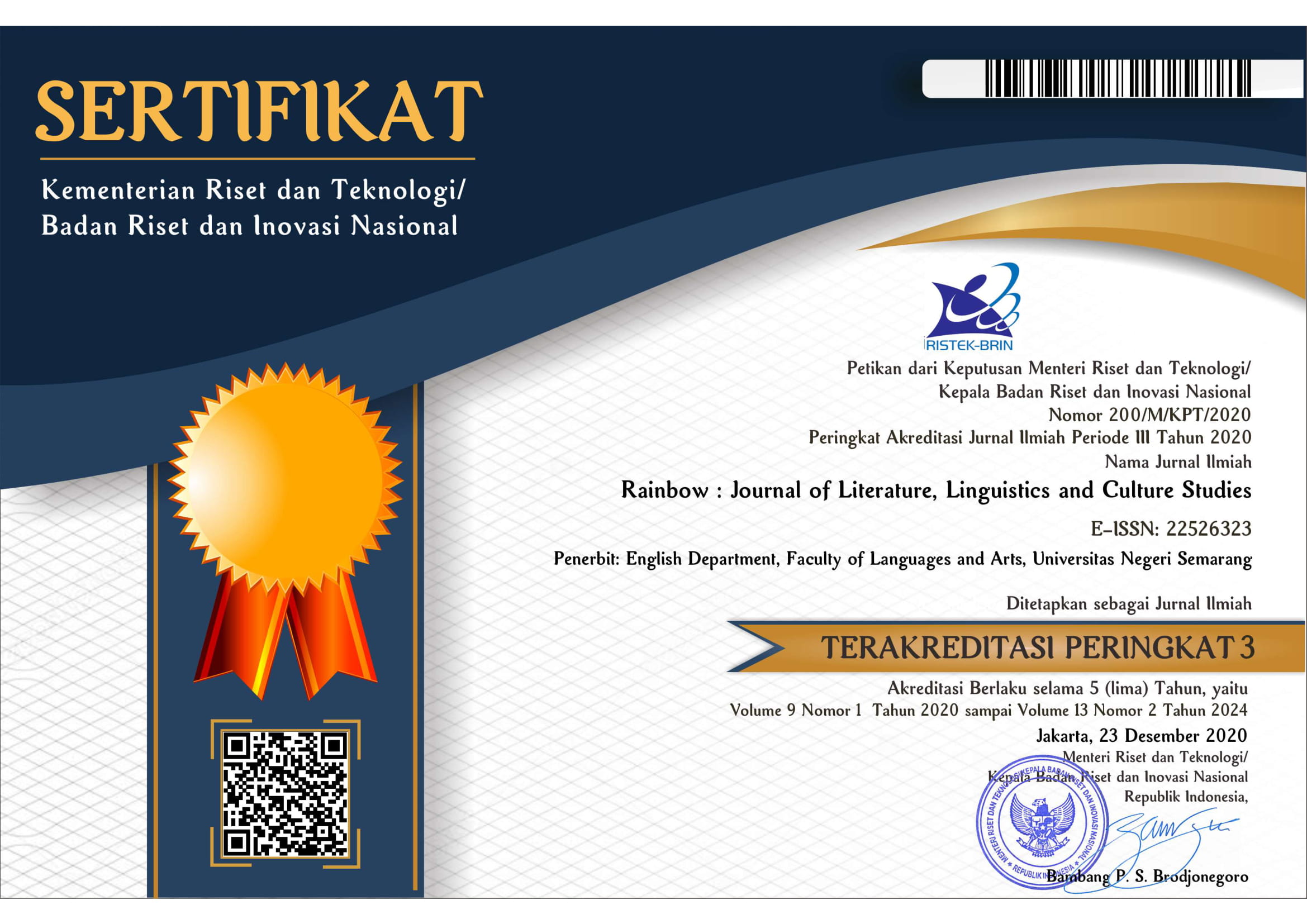Revealing The Meaning of Pilgrim’s Journey for Searching Salvation in Hermann Hesse’s "Siddhartha"
Abstract
This study is the analysis of the character Siddhartha’s pilgrimage journey in the novel entitled Siddhartha. There are three objectives of this study. The first is to describe the conflict between human’s worldly desires and his spiritual quest in Hermann Hesse’s novel, Siddhartha. The second is to explain how Siddhartha’s conflict between his worldly affairs and spiritual journey in view of Gadamer’s hermeneutics. And, the third is to explain how Siddhartha’s worldly and spiritual duality as a revelation of human’s conflict in general. The analysis and the description of the data are provided to find the conclusion. The analysis of this study is using Gadamer’s Hermeneutics theory. The study shows that the main character Siddhartha is searching for salvation through the ordeal life. He learned many teachings from Hinduism, being ascetic Samana, learned Buddha’s teachings, being worldly slave as the courtesan adherent, and finally he finds salvation from the river. In his journey to find salvation, Siddhartha is difficult to find teachings can satisfy him. He got the internal conflict between his worldly and spiritual quest when he became courtesan’s adherent. However, all the inner conflicts that Siddhartha felt have big roles and led him to make the next decision in his life. In the end of Siddhartha’s journey, finally he found salvation. The river has succeeded to change Siddhartha by its voice and “listen†became the key why he gets salvation in his life. Besides, there is the fact that Siddhartha’s story modelled itself on the journey of Siddhartha Gautama the Buddha. Hesse’s Siddhartha was written based on the author’s travel experience in India. The conflict that Hesse portrayed in that story mostly faced by people. In the novel, Hesse characterized Siddhartha as an individual who later found his life wisdom in an act of listening to the voices of nature. Listening means everything for Siddhartha.
Keywords: Gadamer’s hermeneutics, internal conflict, pilgrim’s journey







